歌碑18「おみなえし」-気多神社口 交差点Monument No.18-"Golden Gace Flowers" -Keta jinja guchi Intersection
2022年07月13日
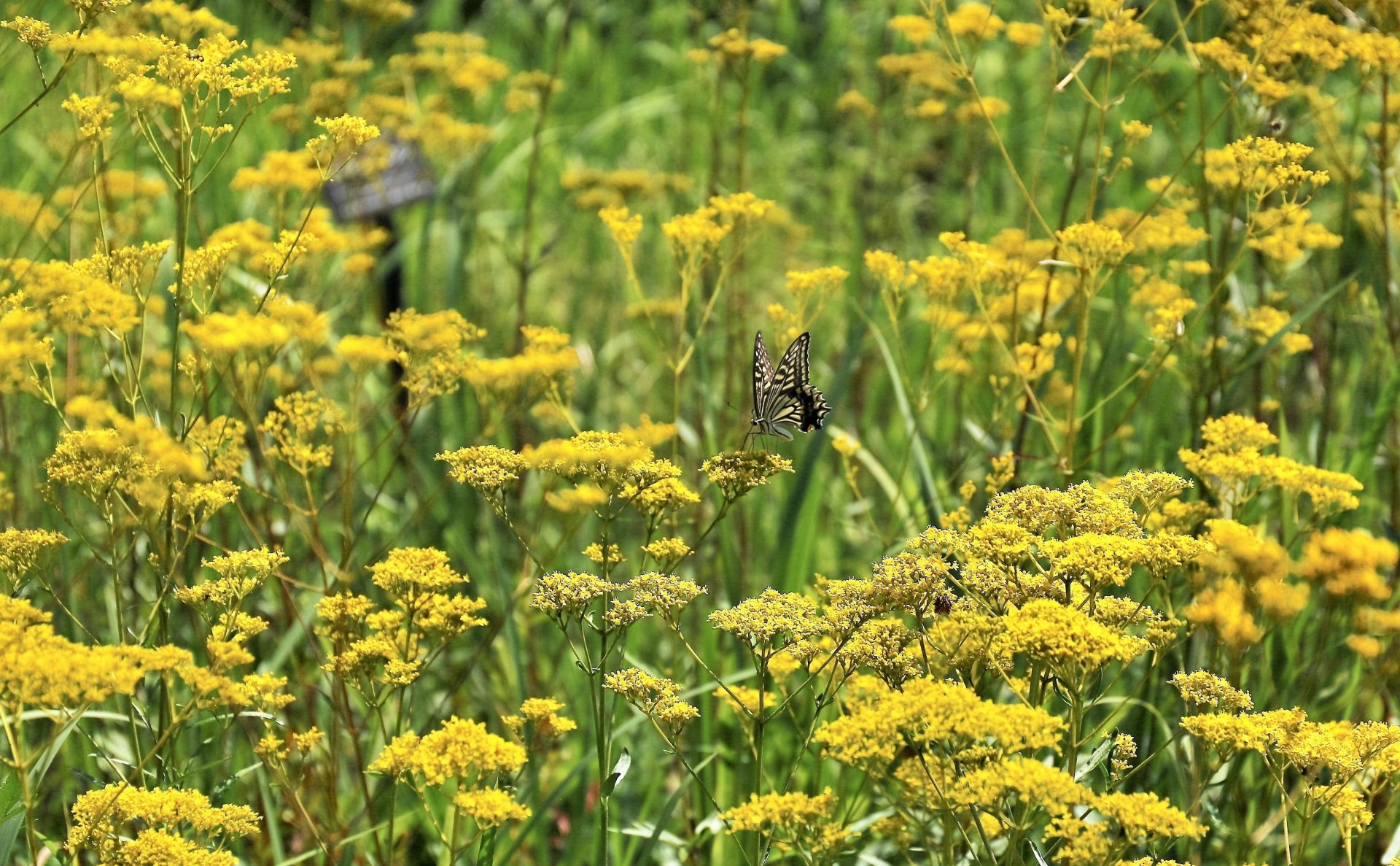
家持が越中に赴任して間もない秋八月、家持の館で開かれた宴で詠まれた歌。本来、「我が背子(せこ)」は女性から男性を呼ぶ時の呼称であるものの、ここでは家持の部下である大伴池主を指す。(撮影 : 竹本正「ひとりじめ」)
This poem was read at a banquet that was held at Yakamochi’s residence in the Autumn, just after he had arrived to take up his assignment. Although the word for “My Darling” (wagaseko) was a term of address usually used by women towards men, Yakamochi uses it in this poem as a term of endearment to refer to his junior male, Ōtomo no Ikenushi. (Photo : Tadashi TAKEMOTO "All to myself")
![万葉歌めぐりの旅[Man'yōshū Literary Pilgrimage]](https://www.manreki.com/manyo-songs/images/common/pic_logo.svg)



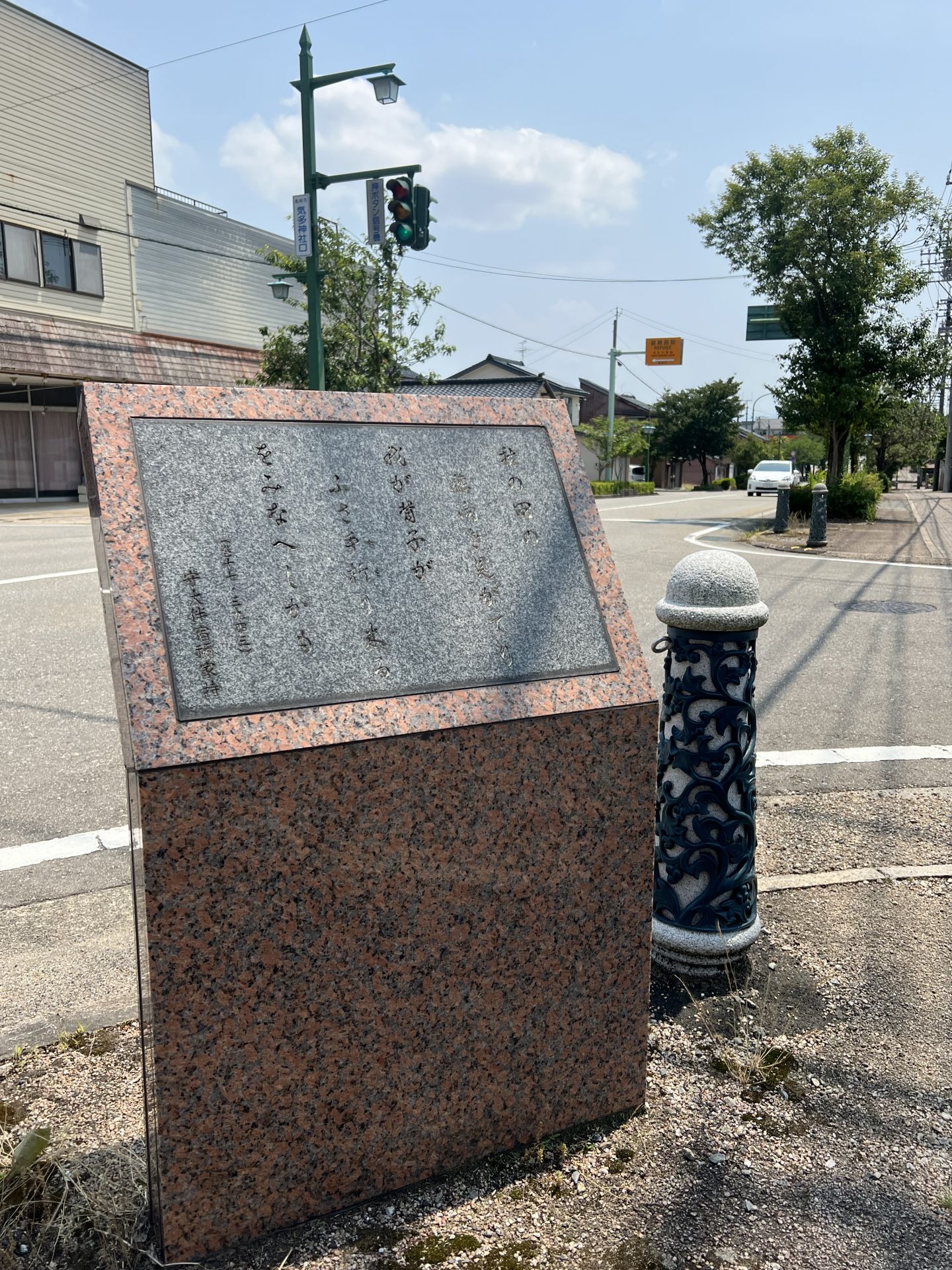
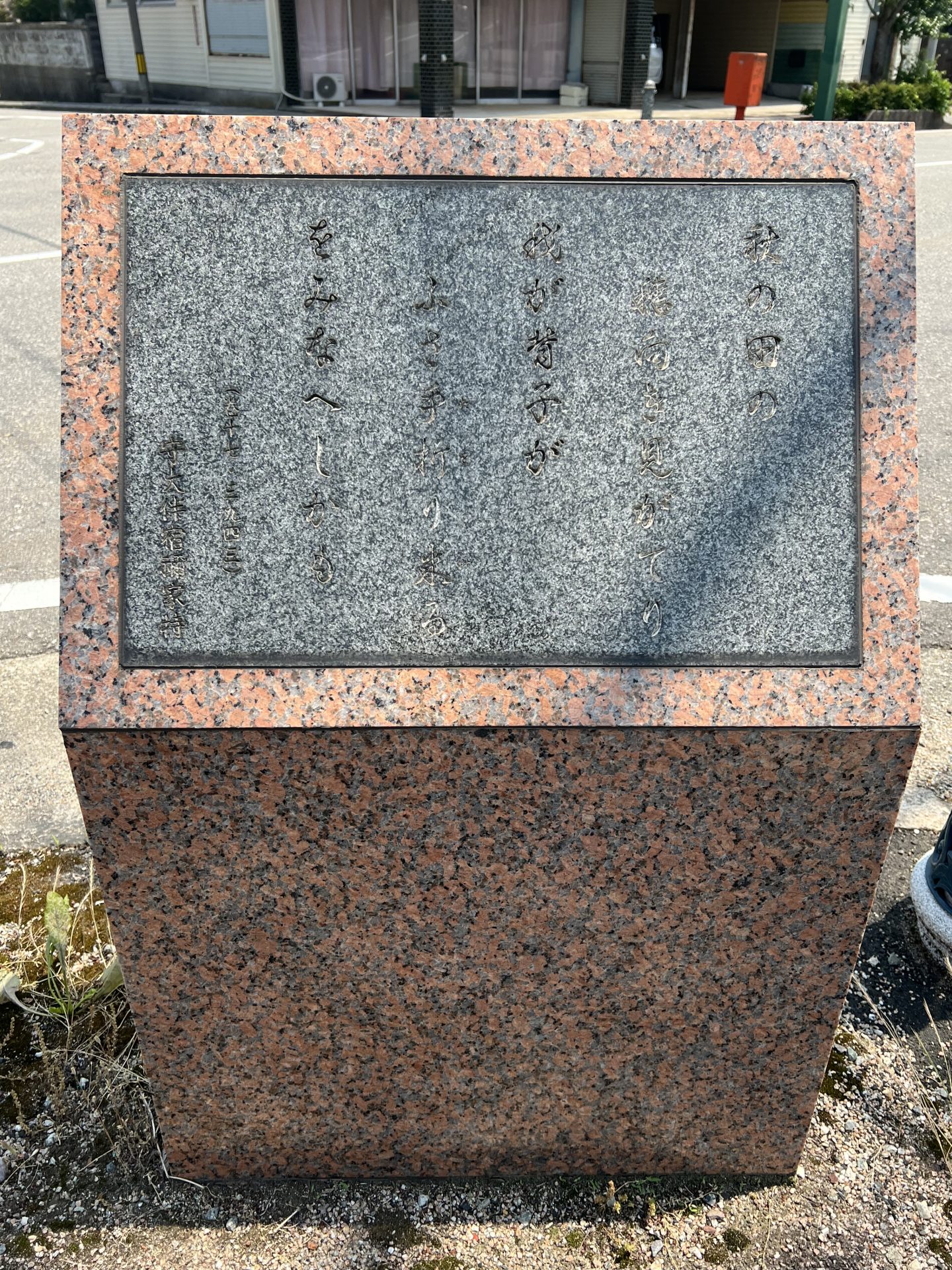
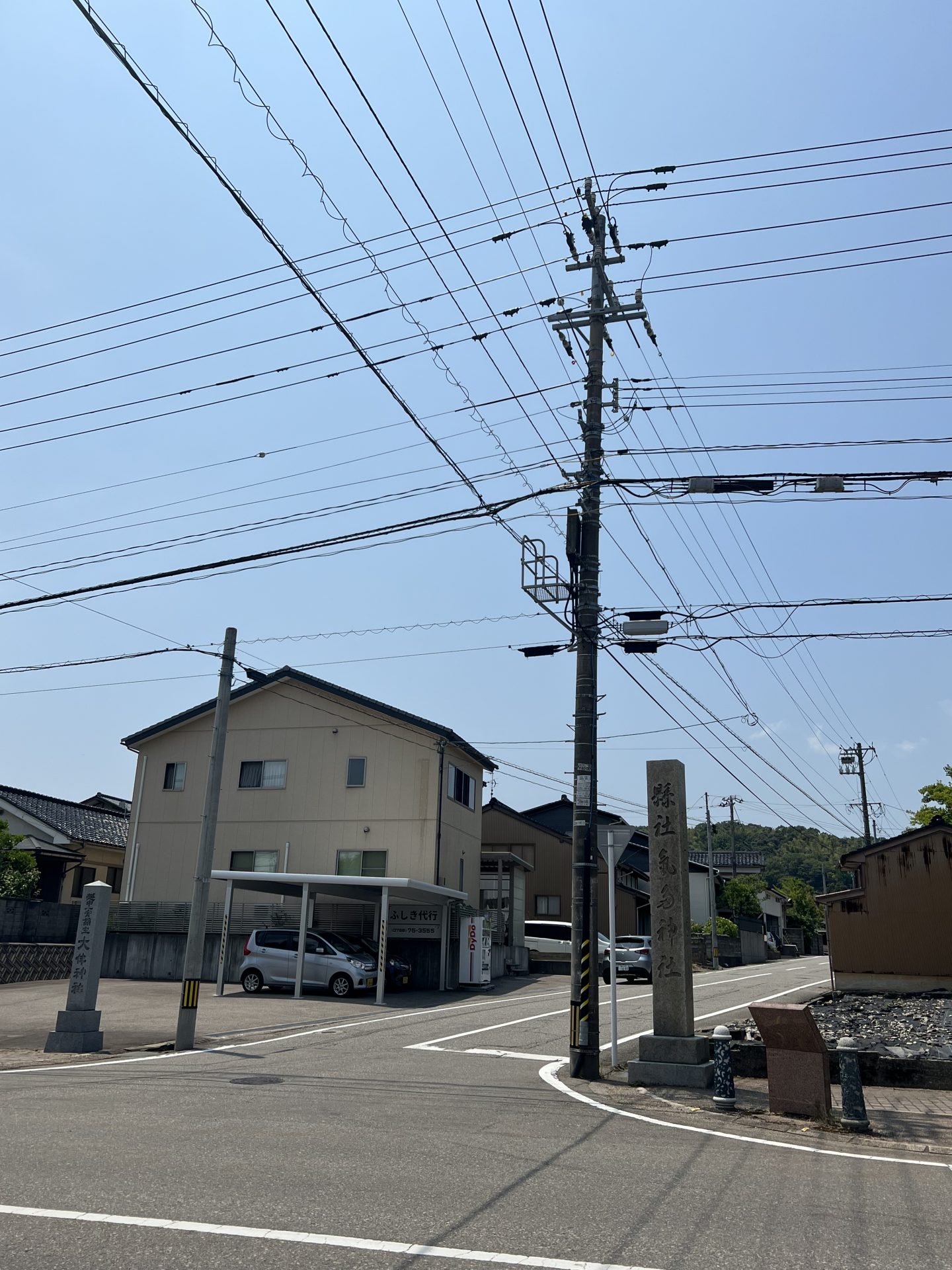
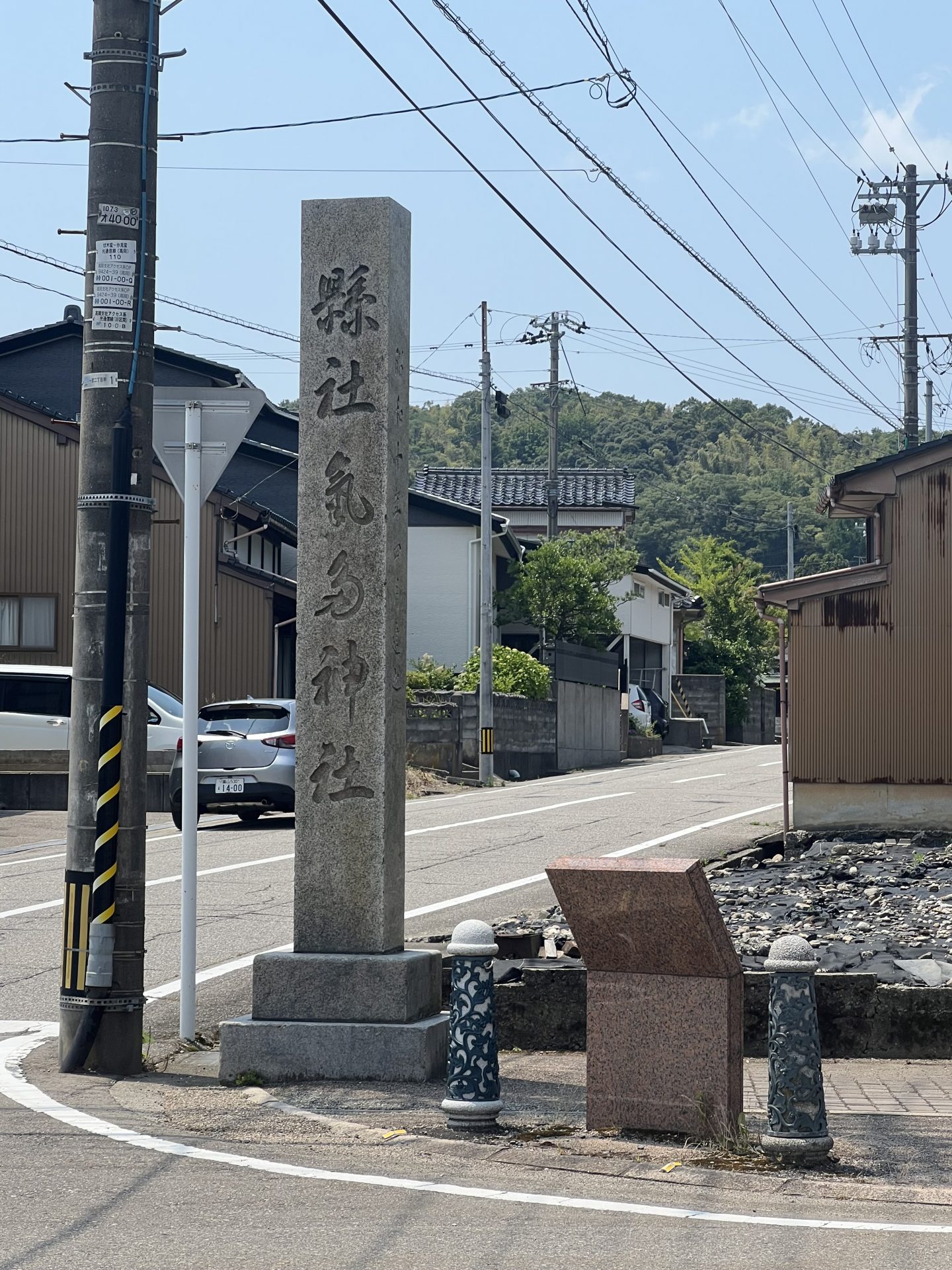
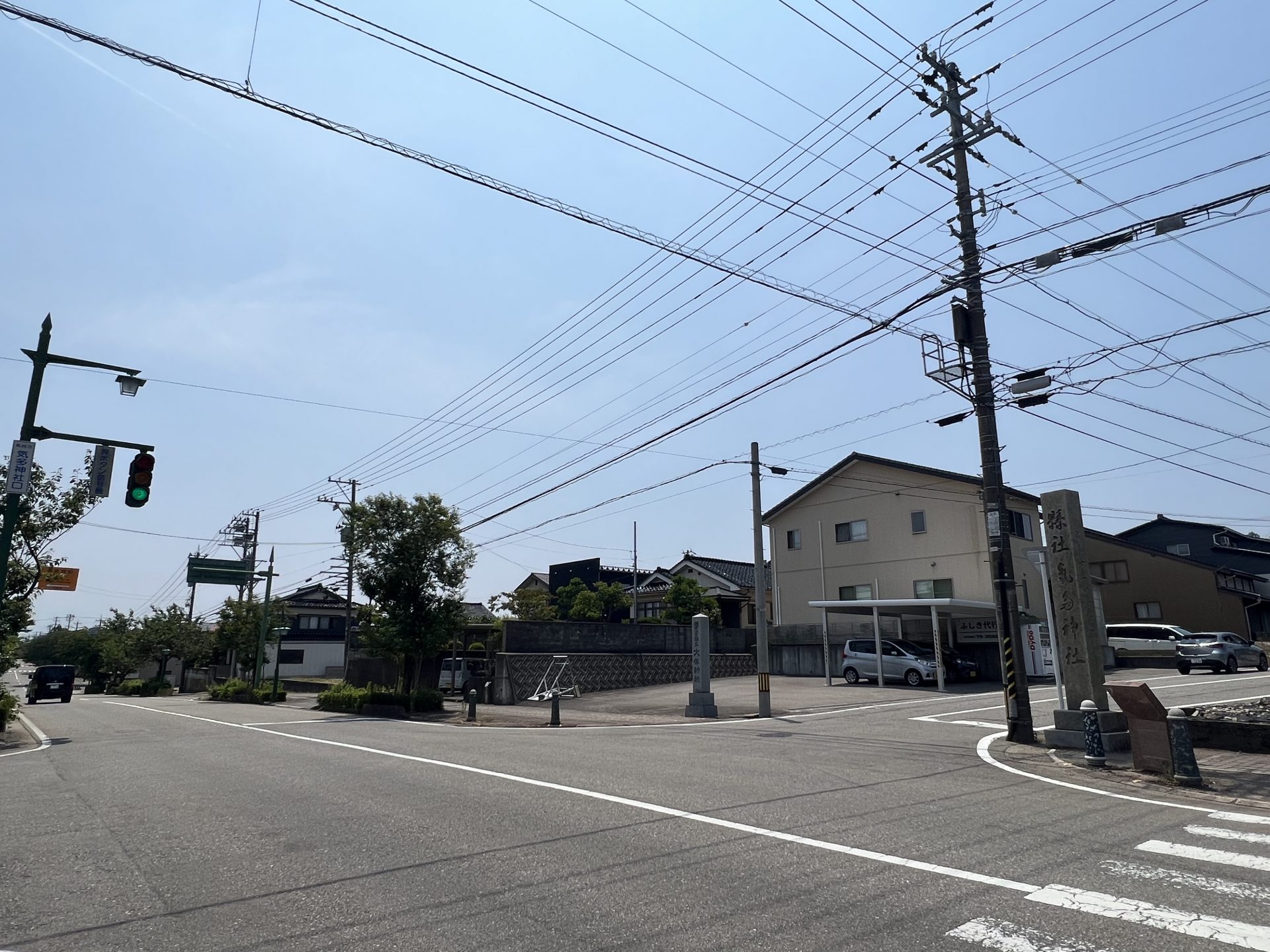




解説
Commentary
おみなえし
Golden Gace Flowers
『万葉集』の3943番の歌。『万葉集』は、7世紀前半から8世紀後半にかけての約130年間の歌を収めた現存日本最古の歌集で、4500首余りの歌が収められている。この歌の作者は大伴家持(718?~785)、『万葉集』でも最も多くの歌を残す歌人である。
家持が越中に赴任して間もない秋八月、家持の館で開かれた宴で詠まれた歌。本来、「我が背子」は女性から男性を呼ぶ時の呼称であるものの、ここでは家持の部下である大伴池主を指す。親愛の情が込められた呼び方だろう。池主はこの宴に手土産として女郎花の花束を持ってきたらしい。
女郎花は奈良時代に入ってから歌に詠まれるようになった花であり、風流の素材であった。その女郎花は稲穂の具合を見たついでに手折ってきたものだという。稲の生育具合を確認することは、国司の重要な仕事であった。その仕事の合間に手折ってきたのですね、とわざわざ確認するように詠いかけることは、上司としての家持の一種の戯れであったのかもしれない。二人の深い愛情がよく表れている、楽しい歌である。高岡市伏木の気多神社口交差点に歌碑が立つ。
(解説 ピーター・J・マクミラン)
This is poem number 3943 of the Man’yōshū, the oldest existing collection of poetry in Japan. The Man’yōshū consists of over 4,500 poems and was compiled over a period of around 130 years, from the first part of the 7th century to the latter part of the 8th century. The author of this poem is Ōtomo no Yakamochi.
This poem was read at a banquet that was held at Yakamochi’s residence in the Autumn, just after he had arrived to take up his assignment. Although the word for “My Darling” (wagaseko) was a term of address usually used by women towards men, Yakamochi uses it in this poem as a term of endearment to refer to his junior male, Ōtomo no Ikenushi, who had brought a bouquet of golden lace to the banquet as a gift to Yakamochi.
Golden lace has been employed in poetry since the Nara period (710-784) and is renowned for its elegance. It is said that Ikenushi picked the flowers by hand while checking on his rice fields. Overseeing the monitoring of rice fields was an important duty of provincial governors, but here Yakamochi is teasing Ikenushi for spending his time picking flowers instead of properly attending to the crops. This is a delightful poem that conveys the deep affection of the two men for each other.
This waka poem stone monument stands at the intersection at Keta Shrine in Fushiki, Takaoka City.
(English Translation and Commentary by Peter Macmillan)